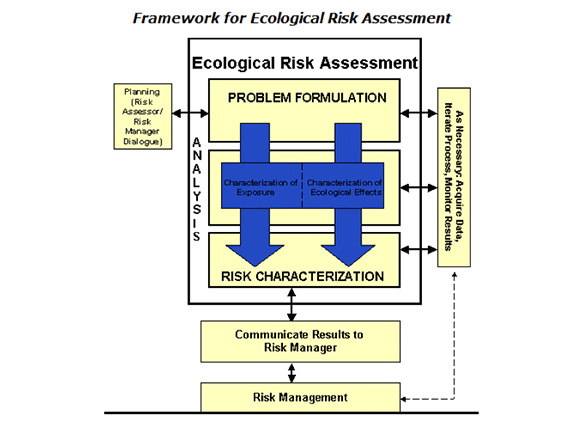

Ecological Risk Assessment Specialty Group
The Ecological Risk Assessment Specialty Group (ERASG) is currently planning several workshops, including such topics as regional risk assessment, invasive species, climate change, statistical methods, and the integration of human and ecological risk assessment. Anyone with an interest in ecological risk assessment is encouraged to join, from eco-risk practitioners to decision makers relying on these analyses for more effective decision making. We encourage SRA members from all sectors to join the ERASG.
Ecological risk assessment focuses on evaluating the impacts of human activities on ecological systems and the services they provide. As with human health risk assessment, ecological risk assessment has its roots in estimating exposure and risk or hazard from chemicals in the environment, but has expanded in recent years to include the wide range of stressors facing ecological receptors. Risks due to invasive or non-indigenous species, genetically modified organisms, and climate change are being evaluated. In contrast to the relatively small spatial scales of past assessments, cutting edge assessments are being conducted at much larger spatial scales. In addition to risk calculations, emphasis is now being placed on more effective use of this information to support decision making and long-term planning in the context of ecosystem services.
The US Environmental Protection Agency has published Guidelines for Ecological Risk Assessment (1998) based on the previously developed Framework for Ecological Risk Assessment (1992).
Ecological risk assessment requires effective transdisciplinary collaboration and has much to offer practitioners across the risk spectrum. Indeed, the recent 2009 NAS “Silver Book” specifically highlighted problem formulation as outlined in ecological risk assessment and its relevance to human health risk assessment.
For more information, see Ecological Risk Assessment at the US EPA.
